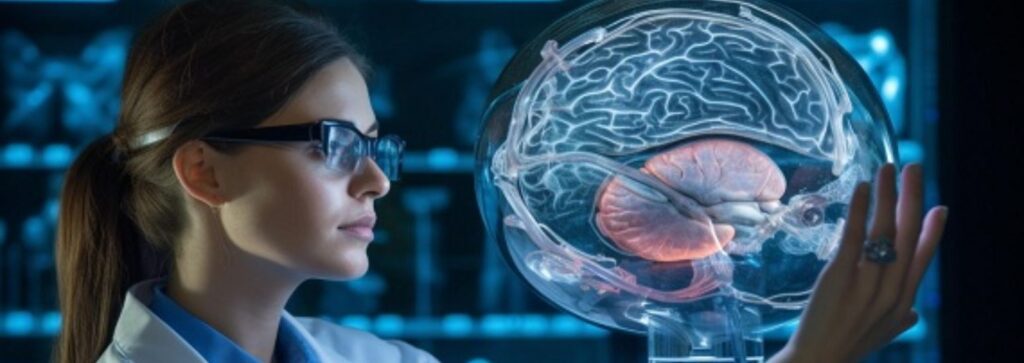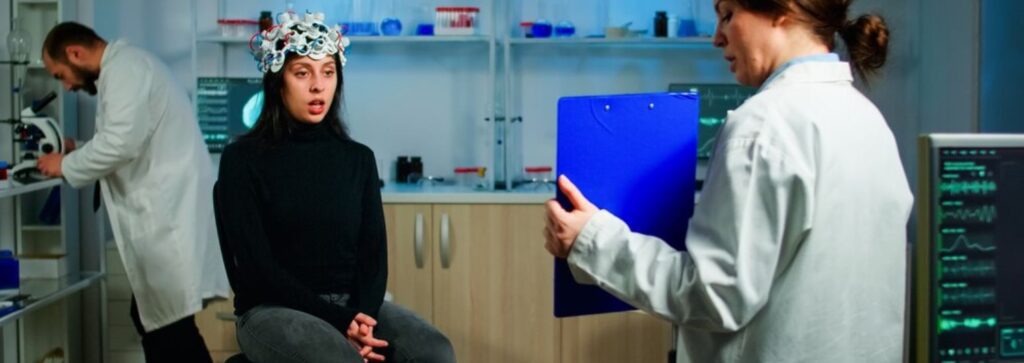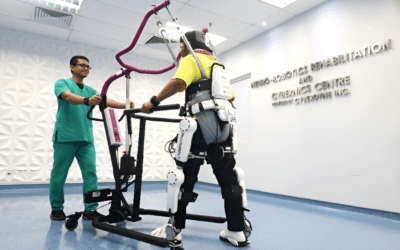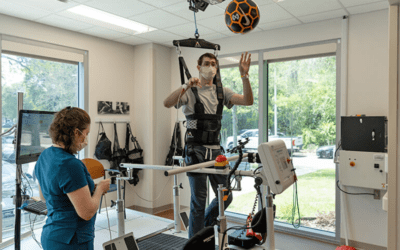The field of neurology remains one of the most dynamic areas of medicine, with advances.
Innovations in Brain-Computer Interfaces (BCI) and Artificial Intelligence (AA) are the next step toward creating Neuroprosthetics to improve rehabilitation within patients. Studies envision the development of BCI and AI with novel technology to transform the lives of those with neurological disorders.
In Research with Artificial Intelligence (AI), Brain-Computer Interfaces (BCIs), and other Neurotechnology, the creation of “smart” technology that can be physically implanted into the brain is a recent rise toward the betterment of society.
Altering neural activity with AI and BCIs can change the face of humanity, ultimately enhancing the state of society.
Future of Neurology with AI

The future of Neurology will be reflected in the greater opportunities to develop therapeutic interventions or ideally prevent progressive neurodegenerative diseases, and the roles to be played by the new breed of neurologists in providing these interventions.
Artificial Intelligence and Brain-Computer Interfaces
- Artificial Intelligence and Brain-computer interfaces are shaping the face of Neurology.
- AI and BCI aim to revolutionise neurology practise in ways unimaginable.
- Developing implants in the brain to improve motor abilities and restore spinal cord injuries with the help of AI, efficiently makes everyday activities for those with such issues smoother.
- AI and BCI are slowly being integrated into several other technologies, revolutionising our future from the creation of robots to autonomous vehicles.
- The integration and addition of AI and BCIs have created more accurate simulations of the brain and a broader scope of the brain’s digital processing system with its large-scale complexity.
- AI-driven systems are faster and more efficient than manual processes.
The “smart” AIs and BCIs including motor and sensory BCIs show notable clinical success, improve the quality of paralysed patients’ lives, expand the athletic ability of common people, and accelerate the evolution of robots and neurophysiological discoveries.
How Can AI and BCI Enhance Neurorehabilitation
Neurological disorders are the second leading cause of death and the leading cause of disability worldwide.
Artificial Intelligence (AI) has significant potential to transform neurology by enhancing the diagnosis and treatment of brain diseases.
BCI and AI have emerged as a revolutionary tool in the arena of Neurorehabilitation, enabling novel methods to enhance motor recovery, cognitive rehabilitation, and functional restoration.
Impact of neurology

Enhanced Neuroplasticity
By providing precise stimulation and real-time feedback, BCIs and AIs stimulate the brain’s adaptability, enabling the strengthening of connections that support motor and cognitive recovery.
Motor Recovery
By capturing brain signals linked with movement intention, BCI and AI enable patients with motor impairments to control external devices, thus encouraging neuroplasticity and motor relearning.
Cognitive Rehabilitation:
Leveraging Neurofeedback techniques, BCIs and AIs offer real-time feedback on brain activity, aiding patients in mastering their cognitive processes and enhancing their cognitive abilities.
Functional Restoration:
BCI and AI bypass damaged neural pathways and establish new communication channels between the brain and external devices, allowing patients to regain control over their environment.
Personalised Therapy:
BCIs and AIS facilitate personalised and adaptive therapy by monitoring brain activity and adjusting intervention parameters in real-time.
BCI, AI, and more of the kind hold the potential to dramatically transform the landscape of Neurorehabilitation and significantly improve patient outcomes.
Soon, Neurotechnology will create new connections between disjointed parts of the nervous system. The pioneering use of passive AIs and BCI is key to creating innovative, accessible, and effective solutions for Neurorehabilitation.
So, connect with us at www.rehabmodalities.com to learn more about our rehabilitation therapy.
To know more write to us: info@rehabmodalities.com

Author – Shruthi Saburi
An Engineer Turned Strategist: Making a Difference through International Neurorehab Robotics Initiatives. Igniting Neurorehabilitation Globally by Shaping Tomorrow’s Solutions across MESASEA Countries.



